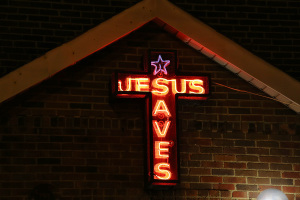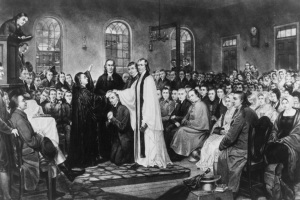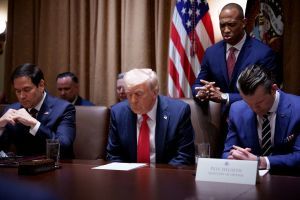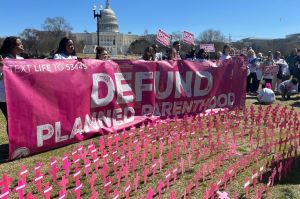Nigerian bishop leaves UMC amid homosexuality schism; regional body’s future uncertain
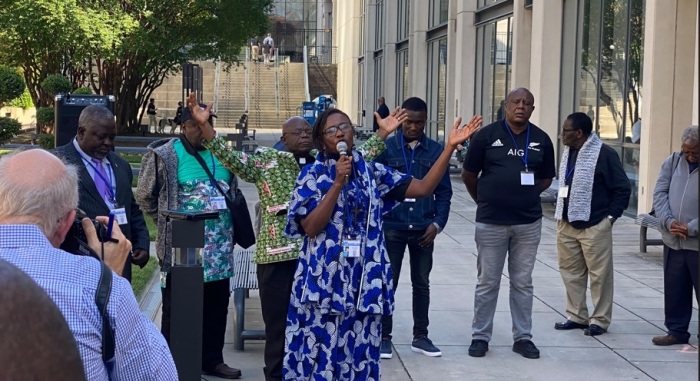
The bishop of the United Methodist Church’s Nigerian Episcopal Area has reportedly resigned from his position, with some or all of the African-based regional body possibly leaving with him in response to the denomination allowing same-sex marriage and ordination of noncelibate homosexuals.
A UMC Council of Bishops spokesperson emailed The Christian Post a statement on Tuesday in which the denominational leadership announced that they accepted the resignation of Bishop John Wesley Yohanna.
Council of Bishops President Bishop Tracy Smith Malone sent a letter to her fellow bishops confirming the resignation, saying it became effective on Monday.
“We are saddened by his decision to no longer continue ministry with The United Methodist Church. I invite us to pray for our former colleague and the church in Nigeria, especially those who choose to remain in The United Methodist Church. This is a very difficult and confusing time for them,” wrote Malone.
Malone stated that the UMC bishops are working with the West Africa College of Bishops and Episcopacy Committee to enact interim episcopal leadership for the region.
Until then, Malone urged bishops with covenantal relationships with UMC congregations in Nigeria to “immediately withhold sending funding and escrow the funds until new episcopal leadership is in place and new mechanisms are in place.”
Malone's request was made of the denomination’s general secretaries, as there are concerns that church funds will not go to the UMC ministry and mission in the African nation.
On Monday, Yohanna sent a statement to Nigerian state officials explaining that at a special called session of the Nigeria Episcopal Area held last week, the entire regional body voted to leave the UMC and join the Global Methodist Church.
The GMC was officially launched in 2022 as a theologically conservative alternative to the UMC. Thousands of congregations in the United States have already switched their affiliations to the GMC
According to Yohanna, the decision to disaffiliate from the UMC came in response to the denomination’s decision earlier this year to allow for same-sex marriage and the ordination of noncelibate homosexuals.
“Therefore we want to make a statement that since the church has derailed from Biblical principle we cannot be in this church where … homosexuality can be celebrated,” said Yohanna.
Yohanna warned that any UMC congregation agreeing with the changes would find themselves at odds with Nigerian law, which prohibits both same-sex relationships and LGBT advocacy groups.
A group of Nigerian UMC church officials released a statement disputing Yohanna’s claim that the Episcopal Area had disaffiliated. They claimed instead that the former bishop and around 10% of the regional body opted to leave.
“Even though we are saddened by their exit, we hold them in our prayers and wish them God’s guidance in their new found faith community,” read the statement.
“We also wish to make it categorically clear ... that our denomination does not permit them to leave with any of the United Methodist property in the way and manner the left.”
The local church officials called on Yohanna and his allies to treat their exit with integrity and not tamper with any of the UMC properties.
CP contacted the GMC for more information. A spokesperson said the denomination is aware of the Yohanna statement and that “we do not have any further information to share.”
In June, it was claimed that the UMC Nigeria Episcopal Area had held a special called session earlier this month at Jalingo in the Taraba state, where delegates voted to leave the denomination.
The conservative Methodist blog People Need Jesus posted a copy of the resolution, which explained that the Nigerian regional body believed that the UMC “prioritizes” the LGBT community “over the traditional beliefs held by many United Methodists in Nigeria.”
The resolution also claimed that “the current United Methodist Church has altered the original language of our Discipline to accommodate cultural values divergent from ours.”
The UMC presence in Nigeria is divided among four annual conferences, which reportedly have a total membership of more than 560,000 members.
However, when reached for comment by CP at the time, a UMC spokesperson replied that the denomination cannot respond until they receive an official report from the Nigerian conference. Others disputed the claim that the session was an official gathering of the regional body.
Dianne Burnett, spokesperson for GMC, told CP in June that “we are actively praying for" Nigerian Methodists "as they discern their future.”
“The Global Methodist Church maintains strong connections with the leadership of the Nigeria Episcopal Area of The United Methodist Church,” she stated earlier this year. “We are informed about the recent votes by clergy and laity concerning the direction of the Nigerian church.”
“Currently, the Global Methodist Church does not have any member churches or clergy in Nigeria. However, we are aware of the interest from churches and clergy in aligning with us. As the Nigerian church makes crucial decisions, we stand ready to collaborate with and support their leadership in any way we can.”
In the spring, delegates at the UMC General Conference voted to remove language from the UMC Book of Discipline that prohibited the blessing of same-sex unions, the ordination of noncelibate homosexuals and the funding of LGBT advocacy groups.
The moves came after approximately 7,500 mostly conservative congregations disaffiliated from the mainline denomination because of the decades-long debate over the hot-button issues in which progressive leaders within the denomination weren't enforcing the Book of Discipline rules.
While the UMC voted to allow LGBT ordination and same-sex weddings in June, many within the UMC have stated their intention to not host same-sex weddings at their churches or have been moved to leave the denomination.
Soon after the changes were made, the Côte d'Ivoire Conference, a West African-based regional body with over 1 million members, voted to leave the UMC because the Book of Discipline had been amended.
Malone said in a statement at the time that the denominational leadership was working with the Ivory Coast-based conference as it becomes autonomous.
“While we are not all of one mind in all things, the strength of our connection is love, respect, compassion and a shared commitment to faith in Jesus Christ,” stated Malone.
“The General Conference decisions that removed the restrictive language in the Book of Discipline related to LGBTQIA persons do not force pastors or churches to act contrary to their conscience and can make decisions in their missional contexts.”
















